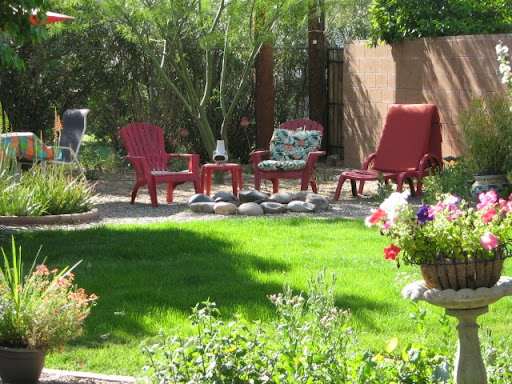
OK - I think it really is dead - NOW - finally. I have watered, fertilized, it has rained twice at least an inch each time and NO NEW SHOOTS have poked through the ground. Compare the picture above to the same shot on my first post. Do you agree with me? Of course you do!
Look at Mike's grass at the top of the picture, in fact there's Mike in a blue t-shirt working in the driveway on something. His grass is nice a green -not mine - It's dead - NOW - finally.
YIPPEE - Stage ONE is done.
OK so NOW what? Of yeah, time to remove all of the dead grass. Don Titmus recommends getting a sod cutter and slicing off the grass, throwing it away. Then hand dig the rest out around areas the sod cutter can't reach. Sounds like a lot of work and it is still 110 degrees outside.
HHMM - time to find a little help me thinks! Maybe some hourly labor or someone who needs a little extra cash? Who do you know? Send them my way!
STAGE TWO begins after the grass is removed - so stay tuned!
Doreen aka the Garden Goddess



.jpg)








